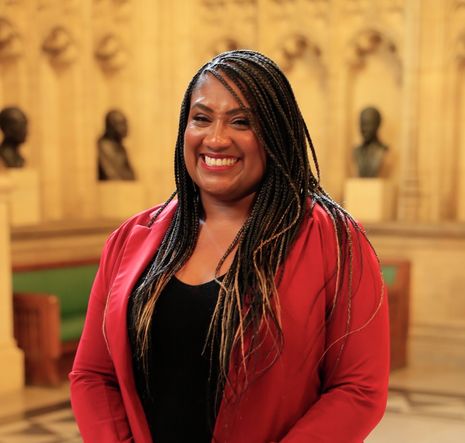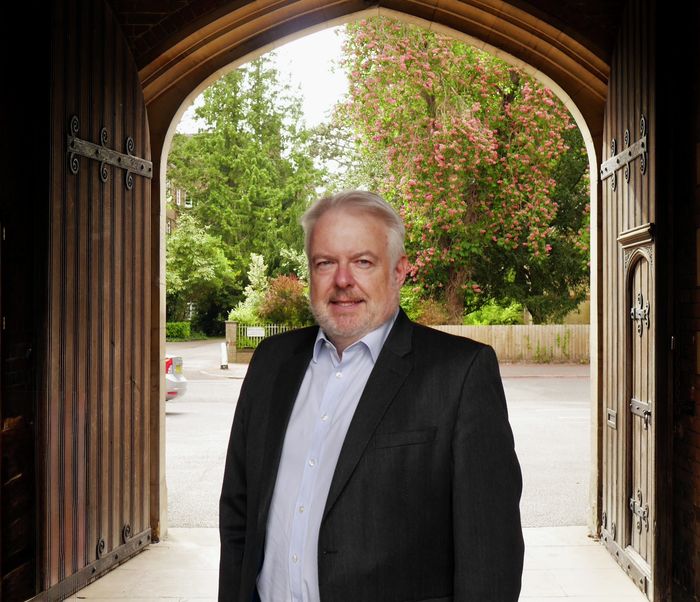Labour MP Bell Ribeiro-Addy on being ‘on the left of the Labour party’
Mariam Al-Badry meets Bell Ribeiro-Addy, former Shadow Minister for Immigration, to discuss reparations and possible divisions within the Labour party

Bell Ribeiro-Addy, the Labour MP for Clapham and Brixton Hill, currently finds herself on a rather unpopular end of British politics. Her Instagram bio reads ‘Socialist. Feminist. Trade Unionist,’ and when I begin to refer to her as on a “kind of on the left of the Labour party,” she laughingly corrects me that it’s “not kind of!” That’s not to say that she is unpopular; she was first elected in 2019 with 54.8% of the vote, and re-elected in 2024 with 56.5%. She feels “very lucky that, generally” the majority of her constituents share her “progressive views”.
“The most important thing is standing up for people and being on the right side of history”.
At a time when the mere idea of immigrants accessing public services causes huge backlash, evidenced most recently by Reform UK’s gains in local elections, I was eager to discuss the internationalism that underlies her beliefs. Ribeiro-Addy unapologetically advocates for reparations to Britain’s former colonies as the chair to the All-Party Parliamentary Group for Afrikan Reparations. She finds that the argument for reparative justice is commonly misunderstood since “nobody can seem to get past the idea of it just being money, and also, no one can seem to get past the idea of it being paid now”. She points to the fact that “when the slave trade was ended by the British, we took out our largest loan in history, and we didn’t finish paying that back until 2015”. Ribeiro-Addy continues, “when it comes to money and government, at the end of the day, we always seem to find enough money to do what we want to. If we need it, we can find the money for it. It’s that simple”.
She is certain that reparative justice is essential for our future wellbeing as a nation. “In a few decades, a quarter of the people in this country will be over 65, whereas 50% of the young people in the world will be on the African continent. We continue to look to the continent for resources, and we don’t want a situation where there’s a generation of people and all they remember is how much Britain took from them. We need to make friends, especially in this post-Brexit world, and we can’t do that if we refuse to even say that we’ve done anything wrong.”
“She believes that, despite the portrayal in the media, the left is no more divided than the right”
Ribeiro-Addy’s outlook on reparative justice is about much more than money: “Reparation is about acknowledgement. It starts with an apology, which costs nothing.” She explains that, “It’s all about equality. It’s about making the world more equal and acknowledging that us engaging with slavery and colonialism made it very unequal,” with the caveat that, “there’s no point in paying a single penny if we haven’t looked at systemic change”. For example, she suggests making the UN Security Council more equal, and reformulating overseas development aid. Without these sorts of changes, “money would just end up recycled back into the West; it’s about equality more than money. Africa and the Caribbean aren’t poor, they’re exploited”.
Ribeiro-Addy dismisses the view that reparations will be ineffective due to corruption in recipient countries as hypocritical. “We need to work with people and not infantilise them. I’m not saying there’s no corruption in any of these countries, but we also can’t say that there’s no corruption in ours. The pandemic really showed that in the worst way,” she observes, referencing the infamous PPE scandal.
In response to the UK Supreme Court’s recent ruling that the legal definition of a woman is based on biological sex and Keir Starmer’s subsequent support, Ribeiro-Addy is firm in her belief that “women’s rights aren’t incompatible with trans rights,” and she stresses that the ruling “doesn’t help anybody”. She emphasises that the harm caused by the ruling won’t only affect trans women, but all women. “I think about women that don’t necessarily conform to what is considered feminine, and how they may be affected: who is going to decide whether they are ‘woman’ enough to be treated as such? Who gets that choice?”
Regarding this dissent with her party leader, she asserts that, “sometimes it’s worth standing up and taking the monstering you might get from the right-wing press. Because ultimately, the struggles of today are the markers of progress for tomorrow. Things change, and the most important thing is standing up for people and being on the right side of history”.
Pushing further, I inquire about the seemingly deep divisions within the Labour party. However, Ribeiro-Addy is unconcerned as, “it’s important to have constructive criticism. It’s not right for us all to agree. The Labour party has always been a broad church and that’s not necessarily a bad thing”. She said: “It’s important to remember the core values that the party stands on. As long as people agree with those, then they should be welcome in the Labour party.” She believes that, despite the portrayal in the media, the left is no more divided than the right. Divisions within the Labour party are merely “placed under a microscope” so that “it is made to look worse than it is”.
 News / Colleges charge different rents for the same Castle Street accommodation2 March 2026
News / Colleges charge different rents for the same Castle Street accommodation2 March 2026 News / News in Brief: waterworks, wine woes, and workplace wins 1 March 2026
News / News in Brief: waterworks, wine woes, and workplace wins 1 March 2026 News / Climate activists protest for ‘ethical careers policy’1 March 2026
News / Climate activists protest for ‘ethical careers policy’1 March 2026 News / Angela Merkel among Cambridge honorary degree nominees27 February 2026
News / Angela Merkel among Cambridge honorary degree nominees27 February 2026 News / Private school teacher who lied about Cambridge degree barred from teaching27 February 2026
News / Private school teacher who lied about Cambridge degree barred from teaching27 February 2026









